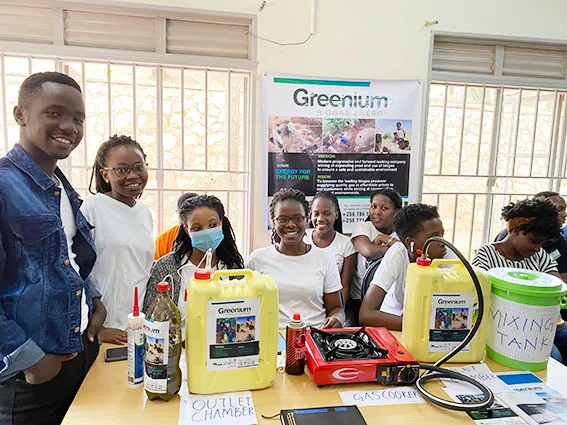By Vanessa Kyalimpa
Uganda Christian University’s (UCU) School of Business (SoB) is on a relentless mission to produce entrepreneurs, who “do” more than “talk” business. This new direction, the business school academics believe, will make them produce more relevant graduates for the world of work. As such, the SoB is putting emphasis on students participating in entrepreneurial projects and exhibitions.
“The first thing my colleagues and I agreed on at the UCU School of Business was to start teaching entrepreneurship, and not just talk about entrepreneurship. Those are two different things,” Aston Amanya, a lecturer of entrepreneurship and project planning, stressed. “Many lecturers teach things that remain on paper and aren’t made practical, which doesn’t help the students.”
The implementation of mandatory exhibitions comes after a curriculum review process at the school.

“This has taken years to kick off,” Amanya said, noting that it took them five years to integrate the practical elements of the course into the existing curriculum.
“Now, every student who pursues a course in entrepreneurship is required to do a project in groups at the start of the semester, and participate in an exhibition towards the end of the semester,” he explained.
For the Trinity Semester, which runs from May to August, the School held its exhibition on July 28 at the International Christian Medical Institute (ICMI) block at the UCU main campus in Mukono. At the exhibition, students showcased entrepreneurial ideas and projects they had been working on throughout the semester.
The participating students were from the courses that form the SoB – Bachelor of Tourism and Hospitality, Bachelor of Procurement and Logistics, Bachelor of Science in Accounting and Finance, Bachelor of Science in Economics and Statistics and Bachelor of Business Administration.
Seeing how the school pushed for the practical element to be included into the main curriculum, one might be surprised to learn that teachers were actually giving themselves more work. With the new addition to the curriculum, the academics will be expected to dedicate more time to mentoring the students, and this, sometimes, is not compensated for in terms of overtime payment.
Amanya said they are driven more by the desire to produce students who will go out into the world and create jobs for themselves.
Elsa Basemera, a year-two student pursuing a Bachelor of Science in Accounting and Finance, said the exhibitions helped them to explore their creative and innovative mind.
“My team members and I spent quite some time discussing what project we were to exhibit,” she said, noting that the ability of their project to solve a community challenge was a key concern.
“In the tropical climate, the challenge of mosquitoes that spread malaria is big,” she explained, giving justification for their choice of the project of making a mosquito repellent.
“Besides teaching us how to work as a team, we’ve also been able to earn money from this project, so we don’t always have to call home asking for money,” Basemera said.
Other projects that students made and were showcased at the exhibition included a biogas plant, art and crafts, confectionery, candles, petroleum jelly and soap.
Student Arinaitwe Griffin Eddy said the knowledge they get can support them to earn money after school, even as they continue to search for jobs.


